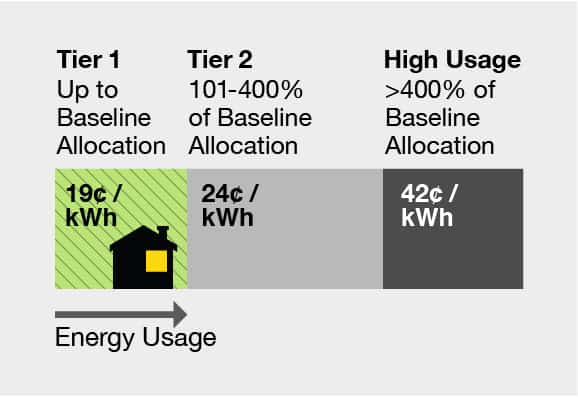
Selecting the best electricity plan is not just about shopping for the lowest rate. It’s about selecting a plan that will meet your current and future energy needs.
In this post, you will learn about some tips on selecting the best electricity plan for residents in Alberta, Canada.
1. Assess Your Power Needs

Source: https://blog.solidsignal.com/
The first step toward selecting the best power plan is to assess your requirements.
You should decide whether a fixed or variable rate is suitable for you. Some suppliers offer a lower variable rate at the start, but the rate could increase significantly in case of higher usage. This will make it difficult for you to budget the costs.
On the other hand, the fixed rate will remain the same throughout the contract period. The type of power plan you select should meet your needs and result in maximum savings in the long run.
If you know that the consumption amount will increase due to a renovation, you should consider picking a variable plan. This will ensure that you don’t pay more for consuming above the limit. In normal cases, you should go for a fixed rate as it will give you the peace of mind in knowing that the rates would remain the same.
2. Consider Green Energy

Source: https://www.taglevel.com/
Green renewable energy is a priority for the Canadian government right now. You can support the initiative by selecting a power plan that is supported by renewable energy certificates.
Renewable energy certificates (REC) are tradable assets that show an individual or firm’s commitment to renewable energy. Companies can earn points that can help achieve LEED or Ecolog certification. The purpose of the certificate is to help reduce emissions by contributing to renewable power projects.
One REC equals about 1 MW of electricity that is produced using solar, wind, biomass, or other renewable power sources. Buying RECs helps contribute to green energy. The rates of energy plans backed by RECs are higher. But the value in contributing to a greener climate makes the extra cost worth it.
One thing you should keep in mind is that power plans backed by RECs are not the same as renewable energy. You may not necessarily receive electricity generated from renewable energy sources. A REC only shows that you have contributed to the development of renewable energy in Canada.
Energy plans backed by REC offer an opportunity for supporting the development of renewable energy. The extra money generated from the plan will be reinvested by the utility company in green energy projects. This will allow you to reduce the emissions that are related to your energy consumption.
3. Know About the Rate Tiers

Source: https://www.sce.com/
When selecting an electricity plan, you need to be aware of the rate tiers. The rate tiers that determine your electricity bills are among the difficult part in selecting a power plan. This is because rate tiers can affect the bills in different ways.
Tiered rate plans will be charged depending on your actual consumption. Higher rates are generally charged for higher consumptions.
Keep in mind that you have to deal with tiered rates are only when you select a variable rate plan. Fixed rates allow you to secure a single rate for the duration of the contract. The rates remain the same regardless of the usage. Still, there are exceptions such as when exceeding a set limit during a particular period.
So, make sure that you read the fine print to understand how much you will be actually charged.
4. Select a Contract Duration

Source: https://www.equipforequality.org/
Lastly, you need to consider what timeframe will be best for you. Alberta power providers offer different period contracts. The contract length generally ranges from one year to five years.
The benefit of long period contracts is that you can lock in on a rate for a longer period. But this also means that you won’t be able to reduce energy costs in case the electricity prices reduce in your area.
With short term plans, you can switch plans more frequently. The disadvantage of this type of plan is that you will have to negotiate a deal more often. There is also the chance of missed renewal due to which the utility provider may switch to a variable power plan.









































